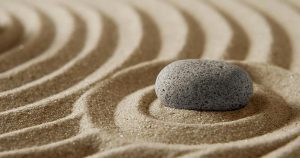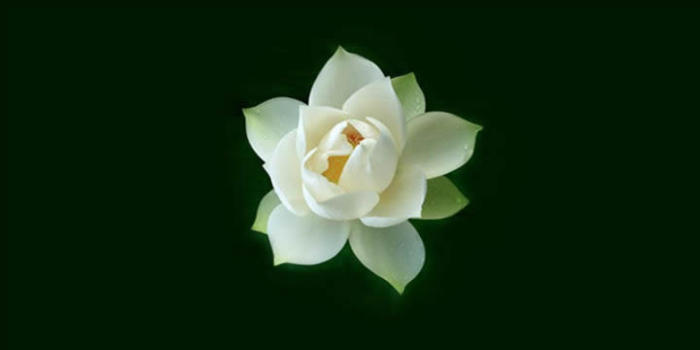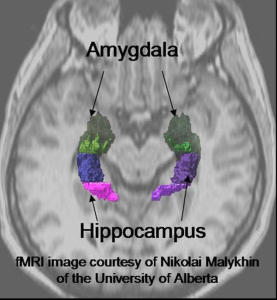An Ancient Practice, Evolve for Modern Healing
For thousands of years, acupuncture has been used to restore balance in both the body and mind. Today, research continues to validate its effectiveness in treating anxiety and depression. By merging ancient wisdom with cutting-edge neuroscience, acupuncture offers a powerful way to calm your nervous system and help you regain your inner equilibrium.
Specific acupoints have been shown to reduce the body’s fight-or-flight response, promoting relaxation, and deactivating brain structures (like the amygdala…see below) associated with survival stress. These treatments are not just about masking symptoms but are designed to work deeply within the body’s systems to address root imbalances that can trigger emotional and physical distress.
My (Gord Grant’s) approach goes beyond the needle – focusing on collaboration with you, to help you trust your body’s natural capacity for healing. This holistic and integrative method supports your resilience, helping you better navigate life’s challenges both in the short term and for lasting well-being.
What the Scientific Research Says About Acupuncture and Anxiety/Depression
This healing process isn’t about masking symptoms. Instead, it’s about addressing the root imbalances that cause distress. Research supports this integrated approach – proving that acupuncture can work as effectively as psychological counselling in managing anxiety and depression.
By targeting specific acupoints, acupuncture has been found to calm the body’s fight-or-flight response, deactivating brain structures linked to stress and survival responses.
I work with you to balance these systems, helping you reclaim your sense of control and inner calm.
Unlike other treatments that may focus purely on symptoms, I believe that managing anxiety and depression requires a comprehensive, integrated approach. It’s about calming the nervous system, but also about rediscovering your own capacity for resilience and peace. The process of acupuncture allows you to reconnect with your body and mind in a way that not only relieves symptoms but also empowers you for the long term.
Whether you’re dealing with chronic anxiety, occasional stress, or the weight of depression, acupuncture offers a safe, natural complement to traditional therapies. Working together, we’ll identify the patterns in your system, and my job will be to help you learn how to see those patterns yourself—so that you’re no longer relying on me but discovering your own strength to navigate life’s challenges.
I’ve seen firsthand how acupuncture helps reduce the tension in both the mind and body, fostering clarity, restfulness, and a greater ability to cope with life’s difficulties.
Let’s work together to ensure you feel more like yourself—calm, clear, and in control.
Research studies have shown that:
Acupuncture is a promising option for people seeking alternatives to anti-anxiety/anti-depressant medications. Studies have shown that acupuncture can work at least as effectively as medications for alleviating symptoms of anxiety and depression, and without any harmful side effects.
- • Acupuncture can work faster than antidepressant medications and lead to greater overall improvements.
- • Acupuncture can enhance the effectiveness of standard therapies when used in combination with them.
- • Acupuncture can be as effective as counselling.
- • Acupuncture is an effective therapy for treating anxiety disorders with fewer side effects than conventional treatment.
Acupuncture Facilitates Counselling
Many patients find that acupuncture enhances their counselling sessions. By calming the body’s stress response, by relieving muscle tension, acupuncture allow you to be more present and receptive to both physical and emotional sensations.
For instance, the strong acupuncture relaxation response accompanied with a reduction in stress levels can help a person better perceive the comings and goings of neck tension, chest or gut discomfort, heart palpitations, or other signs of anxiety. This dynamic state of being more relaxed for days following acupuncture sessions can help one be more open and perceive more subtly the mind-body connection. This state of relaxation opens the door for deeper engagement with both cognitive and body-based therapies, allowing for more effective healing.
Restore Your Emotional Health

I am skilled at interpreting the body language of emotional disturbances and tailoring treatments to create lasting calm and symptom relief. By doing so, my patients gain better ability to build other strategies – good nutrition, movement/exercise, social connections, counselling – into their lives to sustain long-term emotional well-being.
How Many Sessions Do I Need
Every person’s healing process is different, but acupuncture works cumulatively. Generally, three treatments create the momentum needed for change. We’ll continue treatments as long as you experience positive shifts, whether that’s in emotional stability, sleep, or energy.
BOOK ONLINE


